Opinion
Sports in Kandy from the last century to recent times
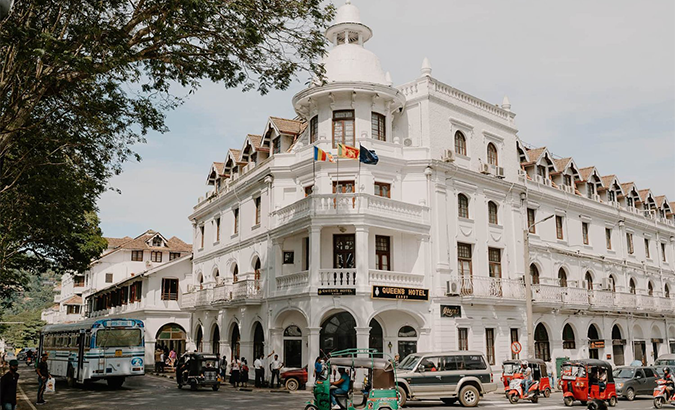
When one thinks of sports in Kandy in the last century the most important thing that comes to mind is the achievement of Duncan White. He was the first Ceylonese to win a silver medal at the Olympics which he achieved in the 1948 Olympic Games held in London. Up to now no other male Sri Lankan athlete has been able to emulate Duncan White. The only other Olympics silver medalist from Sri Lanka was Susanthika Jayasinghe which she achieved as a result of the gold medalist being disqualified.
Later there were the long distance runners who participated in the 10,000 metres event at the Olympics. They were Linus Dias, SLB Rosa and Ranatunga Karunananda. Linus Dias captained the Sri Lanka team at the 1960 Olympics held in Rome. All these athletes were from the Kandy District, and all three had been products of Berreawaerts College in Ampitiya.
Though they were not able to emulate Duncan White in winning any Olympic medals, Karunananda became a hero at the 1964 Tokyo Olympics by completing the last four laps of the race alone after all the other competitors had finished. He was cheered right to the end by the spectators, and he became a hero in Japan as well as in Sri Lanka.
In athletics another product from Kandy was MA Akbar who won a Silver Medal in pole vault at the first Asian Games held in 1951.Both Akbar and his elder brother met with their deaths under tragic circumstances. Whilst Akbar died of a motorcycle accident his elder brother, MA Hakeem died in a freak accident when he was officiating at an athletic meet. This was when a discus accidentally flew off an athlete’s hand and struck him on his head. He succumbed to this injury.
Cricket had two outstanding products of Kandy who brought fame to themselves as well as to the country. They were Muttiah Muralidaran and Kumar Sangakkara. They were from the two rival schools in Kandy, Murali from St. Anthony’s College and Kumar from Trinity College. Both of them hold records in world cricket with Murali holding a bowling record in Test cricket which might remain for a very long time. In addition to these two famous cricketers, there were ACM Lafir and Ruwan Kalpage, both from St. Anthony’s College and TB Kehelgamuwa from Dharmarajah College were in the national team at different eras. Niroshan Dickwella and Lahiru Kumara from Trinity College are presently in the national pool.
Whilst on cricket, I must mention that the first schoolboy cricketer of year was W. Premaratne of St. Anthony’s College, Katugastota when he won he award in 1957 and the second such cricketer was Maurice Fernando of Kingswood College, Kandy who secured the title in 1958.
Hockey was a sport that flourished in Kandy in the mid twentieth century with Kingswood being the leading school whilst Trinity and St. Sylvester’s College also produced good players. The most outstanding hockey player from Kandy was Freddie White (younger brother of Duncan White), an old Kingswoodian who was considered Asia’s best goalie at one time. The other national player from Kandy was Derrick Harvie who was selected as a national player while still a schoolboy at Kingswood. Iqbal Jumar was the third national team player from Kandy (also from Kingswood). The other two who were on the verge of national selection were Mohamed Jumar and WB Adikaram.
On a personal note, the hockey I learnt at Kingswood College helped me to play for the University of Ceylon Peradeniya team and captain the team in my final year. We for the first time won the inter-club tournament conducted by the Kandy District Hockey Association that year. It took the University over a decade to repeat this achievement. I was able to participate in the All-India Inter University Tournament held in Ahmedabad in 1961 as a member along with WB Adikaram another product of Kandy. I also got an opportunity to play as fullback with three illustrious hockey players from Kingswood College – TS Adahan for the Nationalised Services team and Dilsiri “Bullet” Peiris for the Government Services in the Hockey Nationals and with Freddie White for Bloomfield Club in the Andriesz Shield Tournament.
Women’s hockey too became a prominent sport in Kandy with almost all the leading girls’ schools taking to the sport. The game became popular in Kandy after the Kandy Whites women’s team dominated the hockey arena in the 1960s. Zohara Jumar was an outstanding player for Kandy Whites and she secured a place in the national team. Of the other players Nayani Madushani Jayaneththi (product of St. Anthoy’s Convent) takes pride of place as she captained the national hockey team in 2014/2015.
Rugby football was the sport where many players from Kandy excelled. The credit for starting rugby football has to go to Mr. LE Baze’, Founder Principal of Kingswood College who introduced the game at Kingswood in 1893, and the first match was played against Trinity College on August 11, 1906 with the match ending in a draw. Kandy produced most of the national players in rugby football with many of them being from Trinity College. The names of all who have donned the national jersey is too long a list to remember. There have been outstanding players such as Nimal Maralande, Denzil Kobbekaduwa, Mahinda Ratwatte, Eric Roles, Ken De Joodt, Mohan Sahayam, Glen Van Langenberg, etc from Trinity College.
The other players who represented Sri Lanka have come from Kingswood such as Nalaka Weerakkody, Fazil Marija, Eranda Weerakkody , Owen Mattau, Iqbal Jumar, etc, and from Vidyartha which produced players such as TB Wijesinghe, George Jayasena, Edwin Gunaratne, etc, St.Sylester’s had players such as Nimal Leuke, Tony Direckze, Lucky Peiris, etc and Dharmarajah which produced players such as CS Fernando, SU Mendis, Daya Jayasundera, etc. At present the captain of the national rugby football team is the Kandy skipper, Sooriyabandara.
In respect of football, Kandy used to have a very popular and very vigorously played inter-club tournament which attracted a large number of spectators with most of the matches being played at Bogambara grounds. But I cannot recollect any other players of yesteryear who represented Sri Lanka, except for Tom Ossen.
There were some outstanding boxers from Kandy such as Raymond, Bobby Jayaweera and Malcolm Bulner who were products of St. Sylvester’s College. Manju Dinesh Kumara Wanniarachchi (from Vidyartha College) won a Gold Medal at the Commonwealth Games in 2010 in the bantamweight category (but unfortunately he was stripped off his medal after failing a drug test).
Kandy also produced outstanding weight lifters in the SA Wijewickrama brothers and a son Athula, all of whom represented the country. It was Ransilu Jayathilaka who brought fame to Sri Lanka and especially to Kandy by winning medals at the Commonwealth Games and winning the title five times in succession at the Asian Games.
The schools in Kandy are involved in big matches in various sports. The oldest big match in cricket in Kandy is the Battle of the Maroons, that is the big match between Kingswood and Dharmarajah. Then there is the Trinity vs St. Anthony’s College big match. In Rugby the famous school rival matches are the Bradby Shield matches between Trinity and Royal College. There is also the match between Kingswood and Wesley College for the LE Blaze’ trophy. In hockey Kingswood plays Royal for the Lennie de Silva Trophy.
HM NISSANKA WARAKAULLE
Opinion
A new dawn for Sri Lanka
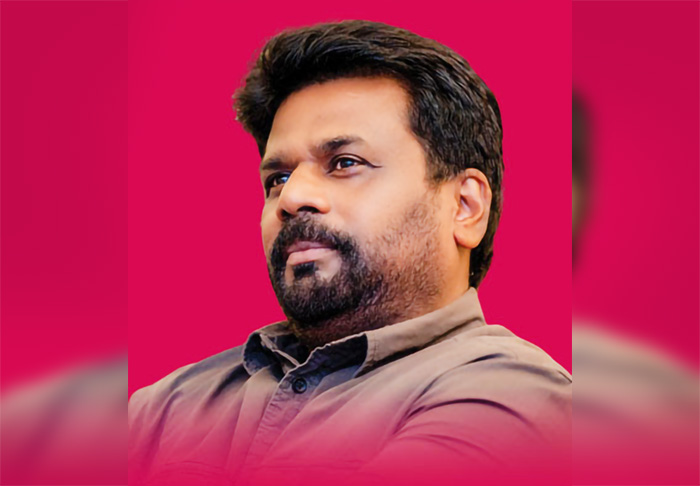
by Ayampillai Dharmakulasingham,
(Retired Sri Lankan career diplomat)
The Communist Party of India won Legislative Assembly elections in the Indian states of West Bengal and Kerala, establishing their respective governments. Leftist parties were also influential in some other states, especially in Tamil Nadu, though they could not capture power there.
In Sri Lanka, JVP/NPP leader Anura Kumara Dissanayake’s rise to the presidency marks a new chapter in the country’s history. The upcoming general election, on 14 Nov. holds significant importance and has raised hopes that Sri Lanka is undergoing a transitional period for good. It may mark the first time a left-wing party comes to power in Sri Lanka. There are other factors that make the upcoming election important. Major political parties have become notorious for corruption, mismanagement of national resources, family dynasties, elitist politics, etc. Corruption has been widespread throughout government, accompanied by nepotism, lack of transparency, and mismanagement of public funds
It is indeed true that the JVP’s presence in the northern and eastern regions, is not as strong as in the south, such as Galle, Matara, Hambantota, Anuradhapura, Kurunegala, and other districts. However, Anura’s popularity has drawn attention in the north as well. For the first time, substantial support appears to be emerging for the JVP in the northern and district districts of Jaffna, Batticaloa, Ampara, and Trincomalee. However, every parliamentary election has been similarly heralded as “historic” by the press and media, though often without substance. The major parties – the United National Party, Sri Lanka Freedom Party, and Sri Lanka Podujana Peramuna – have ruled Sri Lanka repeatedly, with the media often playing a supportive role by portraying each election as historic, ultimately misleading the public.
Sri Lanka’s first left-wing political party, the Lanka Sama Samaja Party (LSSP), once had widespread support across the country and grew powerful enough to become a significant opposition force. The plantation population, in particular, supported both the LSSP and the Communist Party. The LSSP achieved major victories in parliamentary elections after the 1940s. In response, the first Prime Minister, D. S. Senanayake, revoked the citizenship of people of Indian origin, stripping them of their political rights. As a result, the LSSP lost a significant portion of its support base. When the citizenship rights of people of Indian origin were revoked, the prominent Tamil leader G. G. Ponnambalam served as a key Minister in the UNP Cabinet. Although he opposed the provisions of the Act within the Cabinet, Prime Minister D. S. Senanayake ultimately prevailed. Despite his opposition, Ponnambalam failed to take meaningful action to protect the political rights of the hill-country Tamil population. This perceived betrayal led S. J. V. Chelvanayakam to leave the Tamil Congress Party and establish the Federal Party.
In the northern and eastern regions, the parties and organizations that once formed the traditional alliances of the Tamil Alliance and other Tamil parties have fragmented. They are now contesting the general election as separate alliances. Like it or not, the Federal Party remains somewhat influential today, although its support base is not as strong as it once was
Tamil parties have often criticized and blamed the major national parties as being racist. Ironically, most Tamil political parties – such as Thamil Arasu Katchi, Tamil Congress, and the Tamil National Alliance – include “Tamil” in their names. In contrast, the Sri Lanka Freedom Party, United National Party, and Sri Lanka Podujana Peramuna do not reference any race in their names. Yet, Tamil parties have continued to win elections by appealing to Tamil-speaking people with claims that only the major parties are racist. Some insights into racism are important here. Muslim citizens representing major parties have been elected as members of Parliament in predominantly Sinhala areas. However, the stark reality is that the Muslim population in the North and East has been alienated by the Jaffna-centered major Tamil parties.
G. G. Ponnambalam, the leader of the Tamil Congress, advocated for 50/50 representation for the Sinhalese and other ethnic groups, despite the fact that Sinhalese people are the majority. This 50/50 representation demand is seen as an extremely racist slogan. In other words, he openly undermined the representation and political rights of the majority Sinhalese people. S. J. V. Chelvanayakam left the Tamil Congress and founded the Federal Party due to G. G. Ponnambalam’s perceived betrayal of the upcountry Tamils. However, Chelvanayakam’s own performance was not markedly better than that of Ponnambalam. Chelvanayakam’s own words deserve attention. In 1970, when the SLFP coalition swept the parliamentary elections, Chelvanayakam famously declared, “Only God should save the Tamils from now on.” It is essential to closely examine the underlying implications of this statement. The first implication is that the UNP government is preferable. The second is that Sirimao’s party will not benefit the Tamils. Notably, Chelvanayakam’s loyalty to the UNP correlates with the historical voting patterns of the Tamil (Jaffna) people, who have traditionally supported UNP candidates in all elections within the Colombo Municipal limits and the adjoining areas of Dehiwela and Ratmalana.
On 27 Oct., a book titled “Jaffna on Fire” (Tamil version) was launched in Jaffna. Original Sinhalese book was translated by well-known media personality and translator, Manoranchan, into Tamil. The author, Nandana Weerasekhara, presented evidence that the Jaffna Public Library, modern market, and other locations were set on fire during the presidency of J. R. Jayewardene, allegedly with his blessing. Another notable aspect is that Tamil leaders, both before and after this incident, provided full political support to the UNP.
President Dissanayake’s NPP is expected to win significantly in the upcoming general elections. This expectation arises from the fact that most Sri Lankans are seeking change. President Dissanayake has emphasised the need to elect representatives from the NPP in large numbers to cleanse the Parliament. It is understandable that the President requires a strong Parliament to effectively govern the country with new legislative measures. During a meeting in Kilinochchi on 04 Nov., Prime Minister Harini Amarasuriya captured the attention of the audience by stating that Parliament should be cleansed. She emphasised the importance of electing the right representatives in the upcoming general elections. The overwhelming response from the audience reaffirmed the prevailing mood of the country.
Opinion
Franklyn Amerasinghe: an appreciation
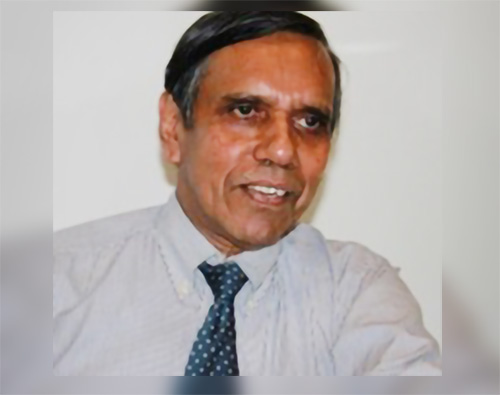
It was 1979. I had just married and was trying to manage my fledgling legal practice in Kurunegala when Franklyn Amerasinghe attracted me to the Employers Federation of Ceylon (EFC). I basically followed what he did 5yrs earlier; the exception being that when he left Kurunegala, he also left a lucrative Practice built by his late father. From then onwards, for the next 45 years he was my colleague, boss, friend and above all; professional and personal guide. I was indeed fortunate as a young professional in the EFC to have had S R de Silva, the doyen of Sri Lankan Industrial Relations and the late Franklyn as my bosses. I am ever grateful to them both for whatever I achieved professionally; ending my working career with the International Labour Organisation in which they served with distinction before me.
I will not dwell herein on the professional attributes and achievements of Franklyn. Neither can I do justice to that aspect in this short piece. Instead, I will attempt to capture what I knew of Franklyn the man. He was personally exposed to the vicissitudes of life in his youth and again thereafter when his loving wife Neelanthi passed away while their two daughters were still school going. These circumstances which would have drained a lesser mortal brought out the best in Franklyn’s innate strong character. Whilst being the devoted father to his young children and successfully managing his professional career, he was also the “go-to person” to so many in need of professional or personal help. With his children grown up and on their own feet, the demands on Franklyn’s time from others only increased. Regardless of social or official status, old or young, he gave wise counsel ungrudgingly and always found time for them. What fascinated me was his ability to make all those who knew him feel that there was a special place in his heart for each of them. They in turn considered him to be special.
Perhaps, it was this unique gift that enabled him to give inspirational leadership to those who worked with him. His faith in humanity was boundless. He genuinely believed that no person was useless. It was this faith that drew him to help the helpless. Few would know of all what he has done or the sacrifices he has made, to assist the less fortunate get on their feet, without breathing a word of what he had given or lost in the process. The “Diamond Trust” he initiated with the support of close friends and family in later years to facilitate learning for handicapped children was a dream come true for him. The Trust was his precious baby in the last days of his life. His wish to see the baby nurtured into adulthood is now in the able hands of his daughters and family. While he will be remembered for his philosophical strengths, he will also not be forgotten by those of us who knew him personally for his social camaraderie. A sportsman himself, he loved sports. So was it with music. His wit and humour was infectious. Many were the long hours he spent with family and friends signing old favourites around a Piano, late into the night at parties. This sense of camaraderie he shared with his office colleagues as well.
We who were at the EFC with him, will recall the family atmosphere he promoted among us. He was truly a man for all seasons. It was my privilege to have had known Franklyn. It will not be easy to fill the void he has left in my life and that of my family. The last audible words he said to me were “I will soon let you know what it is like on the other side” I know for certain that wherever he may be the grass there will be far greener than on this earth. To Michelle and Sharon, the loving daughters of a devoted Father, the tender care you showered on Dad, particularly in his final days was truly exemplary.
Gotabaya Dasanayaka
Opinion
Social responsibility of the media
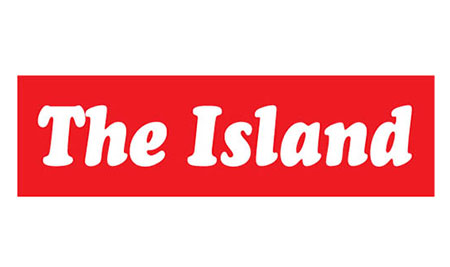
In Sri Lanka, established media channels, particularly television, play a crucial role in shaping public perception on various aspects of life, including both local and international politics. Social media, however, has also become a powerful force, frequently spreading biased or manipulated content that risks fragmenting communities and damaging the social fabric, especially during sensitive times such as general or presidential elections.
Sri Lanka’s media has long been aware of the full spectrum of public life in the country—the good, the bad, and the troubling. They understand that political corruption and malpractice have significantly contributed to social unrest, economic decline, and the deterioration of essential services like education, healthcare, and nutrition. This has prompted many citizens to emigrate, leading to a damaging “brain drain.”
Media outlets also recognise the challenges in electing better leaders. Entrenched politicians have erected legal and financial barriers to safeguard their positions, making it difficult for ordinary citizens to participate effectively in elections. Additionally, the high cost of media exposure during election seasons makes it nearly impossible for average citizens to run for office. While media organisations often use this period to maximise profits, it would be commendable if they could support underrepresented and less privileged candidates, contributing to the public good.
As we approach a pivotal general election, we urge these influential media institutions to uphold their social responsibility. Since media ultimately relies on public support, directly or indirectly, they have to prioritise the public interest. At this critical moment, we, as citizens, need to elect honourable, honest, and patriotic individuals who can act as “watchdogs” in Parliament and help guide our nation toward better governance. We respectfully request that significant media outlets dedicate at least a small amount of airtime to non-political candidates vying for a seat in Parliament. Providing even a few minutes of prime airtime for these candidates to present their mission and vision would be a meaningful gesture toward equal representation. This commitment to the nation’s well-being would be widely appreciated. After all, true equality—the very principle that media frequently champions for its own survival—is now an ideal that can extend to all.
Chula Goonasekera (admin@srilankaleads.com)
On behalf of the LEADS forum
-
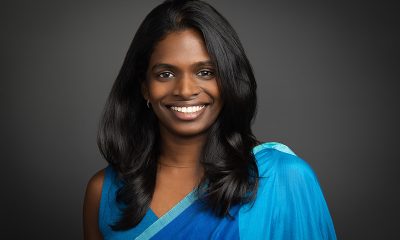
 Business6 days ago
Business6 days agoStandard Chartered appoints Harini Jayaweera as Chief Compliance Officer
-
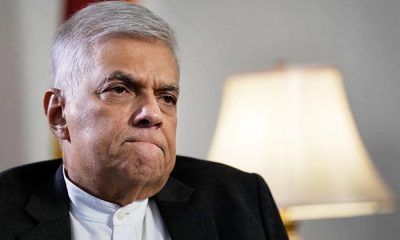
 News7 days ago
News7 days agoWickremesinghe defends former presidents’ privileges
-
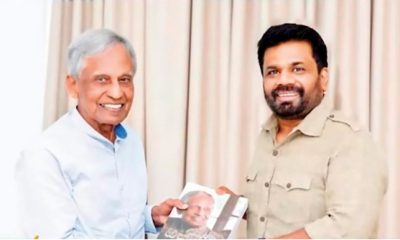
 Opinion7 days ago
Opinion7 days agoDevolution and Comrade Anura
-

 News5 days ago
News5 days agoFifteen heads of Sri Lanka missions overseas urgently recalled
-

 News5 days ago
News5 days agoFive-star hotels stop serving pork products
-
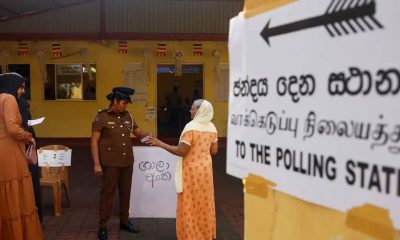
 Features5 days ago
Features5 days agoWaiting for a Democratic Opposition
-
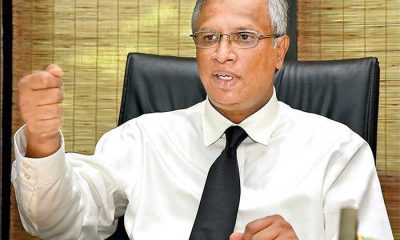
 News4 days ago
News4 days agoITAK denies secret pact with NPP
-

 Sports7 days ago
Sports7 days agoChamika, Anuka shine as Mahanama beat Nalanda











